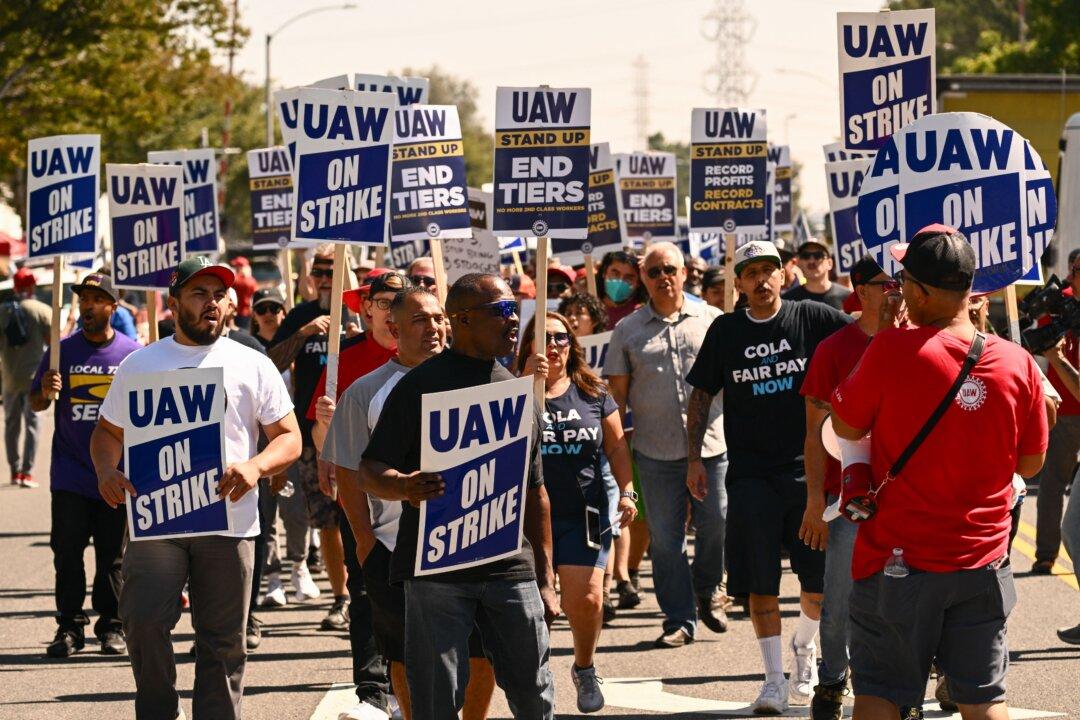Six Republican governors from southern states are warning against unionization of the auto industry by the United Auto Workers (UAW), saying that this puts their “states’ jobs in jeopardy.”
The governors “are highly concerned about the unionization campaign driven by misinformation and scare tactics that the UAW has brought into our states,” they said in a joint statement on April 16.





